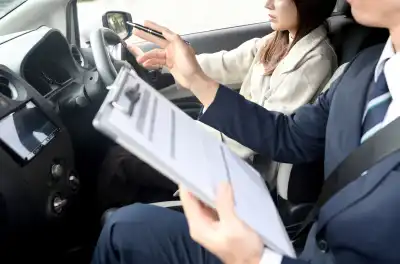
There are a number of motoring convictions that you can be charged with. These can vary from smaller offences to far more serious crimes.
While you might occasionally get away with a slap on the wrist – or be able to take a ‘driver improvement course’ – in a lot of instances you’ll be subject to penalty points and endorsement codes.
But what are these, and how do they work and affect you? Let’s take a look.
What are endorsement (penalty) codes?
Penalty codes, officially known as endorsement codes, are attributed to when a driver has committed an offence on the roads in the UK.
For each conviction, there is a different code, which indicates the number of ‘penalty points’ that can be given out, ranging from one to 11. More serious offences incur more points. If you accumulate 12 points or more on your driving licence within three years, known as ‘totting up’, you will likely be disqualified from driving for at least six months.
It’s worth noting that more extreme offences, such as drink-driving, incur automatic disqualifications, regardless of the points system.
Offences are split into various categories, and though we won’t name every single endorsement code, here we’re going to look at some of the most common and extreme offences from each category and the penalty points that can be given.
Accident offences
AC10 – Failing to stop after an accident. (5-10 penalty points)
Disqualified driver
BA10 - Driving while disqualified by order of court. (6 points)
BA40 – Causing death by driving while disqualified (3 to 11 points)
Careless driving
CD10 – Driving without due care and attention. (3 to 9 points)
Construction and use offences
CU30 – Using a vehicle with defective tyre(s). (3 points)
Reckless/dangerous driving
DD10 - Dangerous Driving. (3 to 11 points)
DD80 – Causing death by dangerous driving (3 to 11 points)
Drink
DR10 – Driving or attempting to drive with an alcohol level above the limit. (3 to 11 points)
DR40 – In charge of a vehicle while alcohol level above limit. (10 points)
Drugs
DG40 – Driving or attempting to drive with drug level above the specified limit. (3 to 11 points)
Insurance offences
IN10 – Using a vehicle uninsured against third-party risks. (6 to 8 points)
Licence offences
LC20 – Driving otherwise than in accordance with a licence. (3 to 6 points)
Miscellaneous offences
MS50 – Motor racing on the highway. (3 to 11 points)
Motorway offences
MW10 – Contravention of special roads regulations (excluding speed limits). (3 points)
Pedestrian crossings
PC10 – Undefined contravention of pedestrian crossing regulations. (3 points)
Speed limits
SP30 – Exceeding statutory speed limit on a public road. (3 to 6 points)
Traffic direction and signs
TS10 – Failing to comply with traffic signals. (3 points)
Theft or unauthorised taking
UT50 – Aggravated taking of a vehicle. (3 to 11 points)
How long do penalty points stay on your licence?
For the overwhelming majority of offences, penalty points must stay on your driving record for four years, with the ‘start’ date either being the date of the offence, or of the conviction.
However, in the case of codes CD40 and CD70 – both offences relating to causing death through careless driving when unfit through drink – these stay on your lincence for 11 years from the date of the conviction.
Which endorsement codes have the biggest impact on insurance premiums?
If you are convicted of any driving offence, it will have some impact on your insurance. That’s because any points signal that you are a greater risk on the road.
As a general rule, the more points on your licence, the higher your insurance premiums will be, and it may also be harder to get insured in the first place. Endorsement codes linked to driving under the influence of alcohol or drugs are some of the worst driving offences. Higher-level speeding offences can also have a major impact on insurance.
Do I have to tell insurers about my penalty points?
Yes, it is mandatory that you tell your insurance company if you are handed penalty points on your licence for a motoring conviction, or are given a fixed penalty notice. It is part of The Road Traffic Act 1998,
What happens if you don’t tell your insurance company about penalty points?
Some insurers may only require to alert them of penalty points when it comes to renewal, for example when they ask the question ‘Have there been any changes since last year’. You might not need to alert them during the policy, but it’s worth reading through the documents you were sent upon taking out the initial policy to make sure.
But if you don’t tell your insurer, your policy could be invalidated, meaning any future claim could be turned down. You will likely struggle to get car insurance again in the future too.
It could mean you are uninsured too, which may result in prosecution and up to eight additional points on your licence. While declaring the points on your licence will have a negative effect on your premium, it will cost less than the consequences of lying about it.




